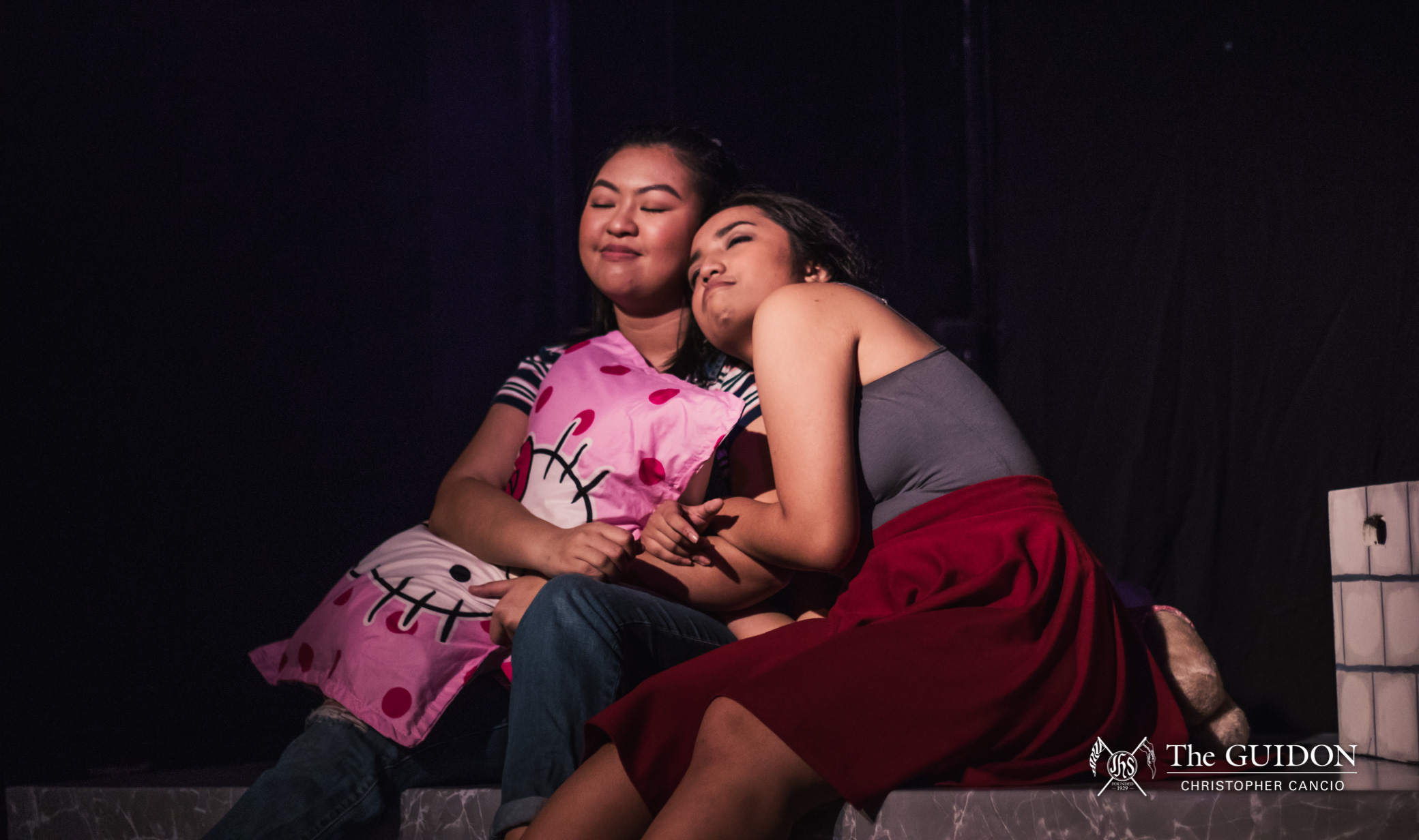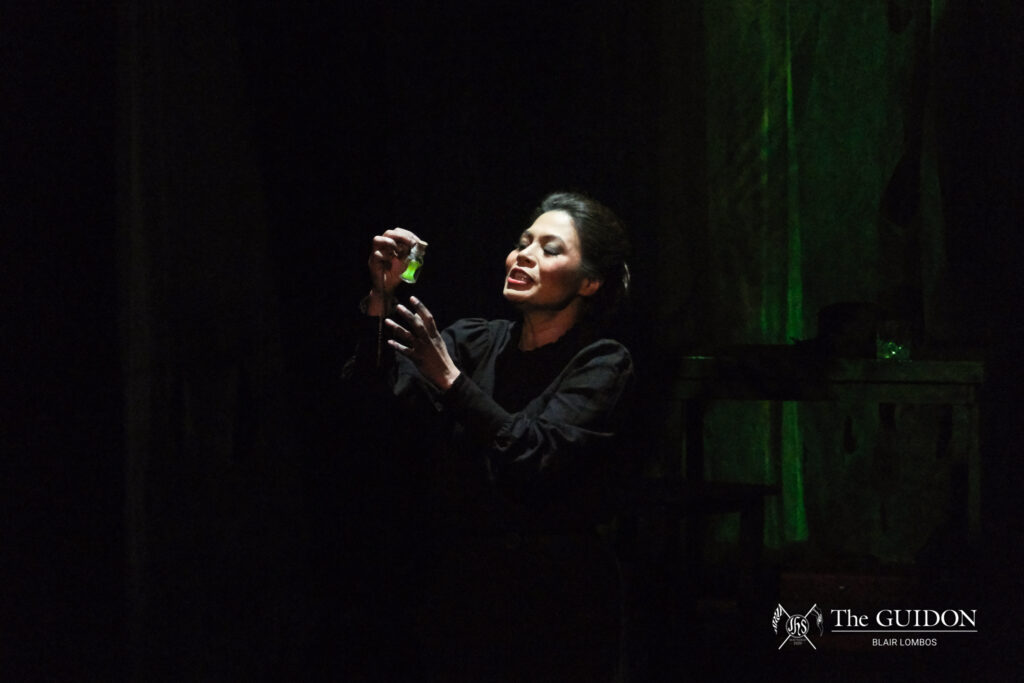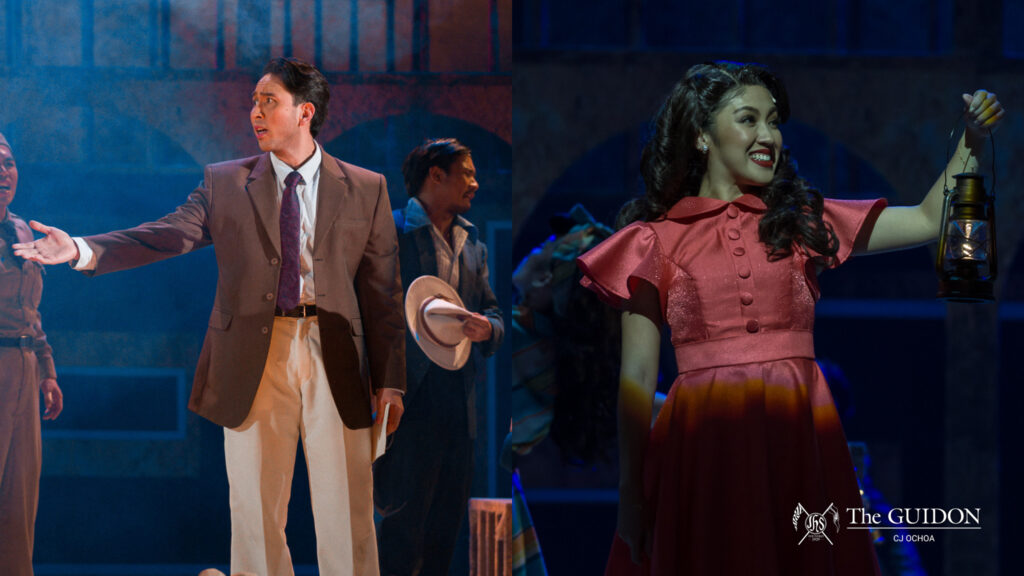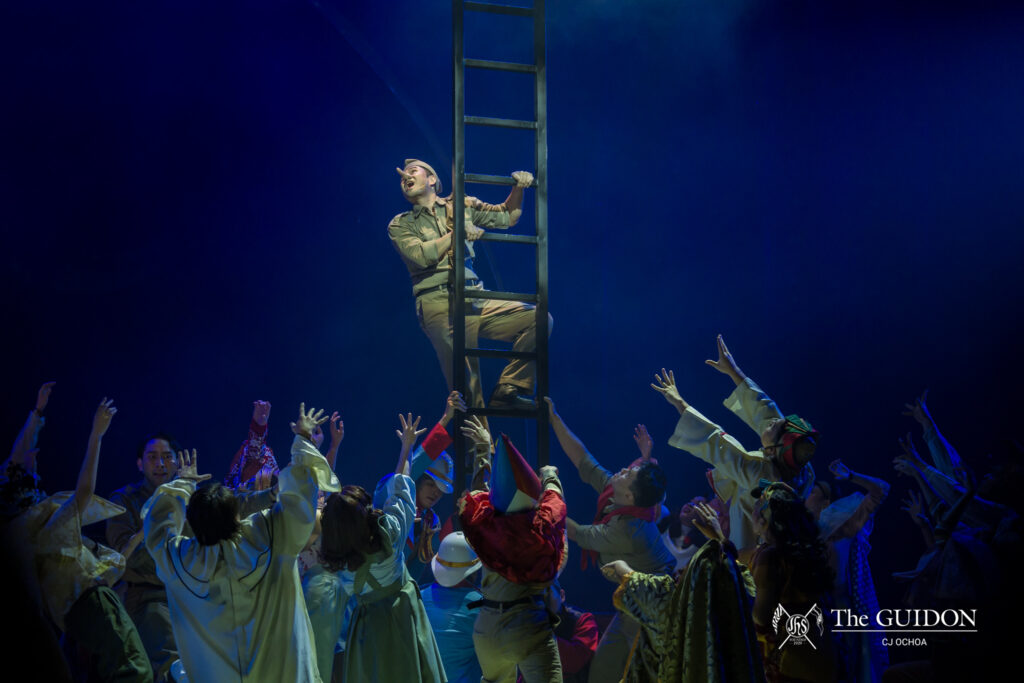Sometimes you outgrow people. It’s a natural course of life, but what may follow is a lingering regret. Presented by the Fine Arts Department, the thesis play BFF chronicles this sentiment through a heartfelt coming of age story.
Directed by Missy Maramara, the play, written by Anna Zeigler, follows Lauren (Alecx Lorica) as she switches between timelines to narrate the story of her childhood best friend, Eliza (Camille Abaya), and her relationship with her boyfriend, Seth (Hans Braga). Between these two timelines, we learn how she tries to reconcile the person who she strived to be in her youth and the person she becomes in her adulthood.
From start to finish, this story was told deftly in the actors’ subtle, yet powerful acting. Struggling a lot with identity, Lauren’s story is told by the careful acting of Lorica. In every scene of a young Lauren, her eyes tell the story of a girl wanting so desperately to grow up, all while trying to appease a friend who wants to stay in her youth. Her exasperation and youthful naiveté perfectly portray an innocent preteen so ready for the world. Even when this is no longer the case, as seen in her scenes as an older Lauren, she still manages to appear have a multitude of emotions that go beyond just being inhibited.
Braga’s fine performance as the awkward and endearing Seth is stereotypically opposite to his physique; yet, he still manages to make the audience swoon at his hilarious attempts to flirt during the play. He manages to be the most natural of all the actors in the play, and is reminiscent of someone you might know in real life. He narrates making calls and fumbles when he tries to speak to his crush, like anyone in love, and shines through beyond being just the protagonist’s primary love interest. There is both a hardness and softness to him that is both natural and innate, even in the play’s most difficult scenes.
However, it is arguably Abaya’s role as Eliza that is the star of the show. Her innocence is different from that of Lauren’s, in such a way that she is childlike, without seeming childish. She exudes a joie de vivre that is infectious and uplifting even to the jaded. Even in her most heart-wrenching scenes, she still creates an air of childlike wonder around her. No matter the obstacles, her gaze is perpetually innocent, pure, and unabashed, and that shows in every choice Abaya makes. Consistent and brilliant, she is a wonder to watch.
While the play has its flaws, such as the uneven and confusing timelines and frustratingly irrational characters, Maramara’s direction overcomes all of this to deliver a story that is heartfelt and universal. Her crisp direction allows for the loquacious script to still seem natural, as her actors make braver and braver choices as the play goes on.
With choreography integrated so seamlessly into the play, every action portrayed by the characters seems organic. Choreographed by Stephen Vinas, it lends to the artistic side of the play, and triumphs spectacularly on the versatile stage of Kayla Teodoro. While it can be said that the stage is objectively minimalist, it is set so beautifully with props (care of props technical director, Wills Gomez) that still give off a realistic vibe needed for the scenes being played out. Peppered with ‘90s references, it is a treat to recognize the subtle references in this play, courtesy of this play’s props team.
Other noteworthy technical aspects are the lighting and costume design, designed by King Morales and Yanna Parpan respectively. These aspects may seem subtle, but they provide so much depth to the play. Both lend a sense of time, nostalgia, and feeling, as the muted lights and flowing fabrics dance across the stage. From the more grungy plaid pieces to the pink lights shining on Eliza’s later scenes, almost everything plays to the moods and era of the scene. In the few moments that there are thematic diversions from the otherwise cohesively produced play—such as the scenes with Megan or the latter scenes of Eliza—they still blend and lend themselves well to the story’s development.
All in all, BFF is a play worth watching for anyone who misses their childhood. It is full of depth and life, even when there should be none. It brings back not only the delights of childhood, but also the darker moments we would rather forget. The actors harmoniously bring together a story of both a disillusioned adult and a naive child. It is relatable and honest with its smooth theatrical and technical direction. It reminds everyone what it’s like growing up, not knowing what to do when you regret something so deeply, and the trip going where you need to go after that. A must for the nostalgic, BFF is a pleasure to watch for the little kid in you.
Rating: 5/5
Photo by Christopher Cancio






